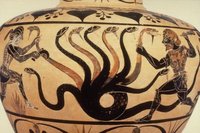 Here’s a good test for the new U.S. Executive: to recognize that
steady pragmatism means radical change, starting with the FCC:
Here’s a good test for the new U.S. Executive: to recognize that
steady pragmatism means radical change, starting with the FCC:
The solution here is not tinkering. You can’t fix DNA. You have to bury it. President Obama should get Congress to shut down the FCC and similar vestigial regulators, which put stability and special interests above the public good. In their place, Congress should create something we could call the Innovation Environment Protection Agency (iEPA), charged with a simple founding mission: “minimal intervention to maximize innovation.” The iEPA’s core purpose would be to protect innovation from its two historical enemies—excessive government favors, and excessive private monopoly power.Lessig gets the connection with his old topic of intellectual property and copyright. Those are monopolies granted by the federal government, and they have been abused by the monopoly holders just like the holders of communication monopolies: Continue reading—Reboot the FCC, We’ll stifle the Skypes and YouTubes of the future if we don’t demolish the regulators that oversee our digital pipelines. By Lawrence Lessig, Newsweek Web Exclusive, 23 Dec 2008